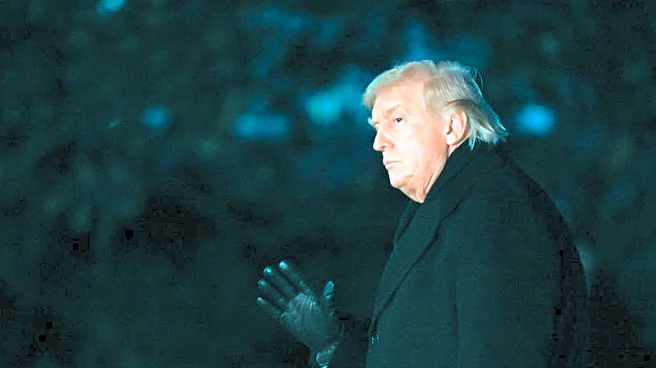What's Happening?
Rabbi David Yosef, the Sephardic Chief Rabbi of Israel and Rishon LeZion, has issued a strong call for parents to vaccinate their children in response to a measles outbreak in Jerusalem and other cities. He criticized parents who refuse vaccinations, stating they should bear the guilt if their child suffers due to their decision. Rabbi Yosef condemned religious arguments against vaccinations, asserting that such claims misuse the Torah. He emphasized the importance of following medical advice, citing historical epidemics where strict isolation and vaccination saved lives. Rabbi Yosef also warned against popular rabbis who discourage medical treatment, recounting a past incident where he intervened to ensure a child received necessary cancer treatment.
Why It's Important?
The Rabbi's statements highlight the ongoing tension between religious beliefs and public health measures. His call for vaccination underscores the critical role of religious leaders in influencing community health decisions. By condemning religious opposition to vaccines, Rabbi Yosef aims to prevent further spread of measles, a disease that can have severe health implications. His remarks may influence public opinion and encourage compliance with vaccination guidelines, potentially reducing the outbreak's impact. The Rabbi's stance also reflects broader debates on the intersection of faith and science, particularly in communities where religious beliefs strongly influence lifestyle choices.
What's Next?
Rabbi Yosef's call to action may prompt increased vaccination rates among communities influenced by religious leaders. Health authorities could collaborate with religious figures to promote vaccination campaigns, leveraging their influence to reach hesitant populations. The Rabbi's condemnation of anti-vaccine rhetoric might lead to public discussions on the role of religion in health decisions, potentially fostering a more science-based approach to public health within religious communities. Additionally, his warnings against alternative medicine could spark debates on the efficacy and safety of non-conventional treatments.
Beyond the Headlines
Rabbi Yosef's intervention highlights ethical considerations in balancing religious freedom with public health imperatives. His remarks may provoke discussions on the responsibility of religious leaders to prioritize community health over doctrinal interpretations. The Rabbi's advocacy for conventional medicine over natural remedies raises questions about the integration of alternative therapies in healthcare. This development could influence long-term shifts in how religious communities approach health crises, potentially leading to more proactive engagement with scientific recommendations.










